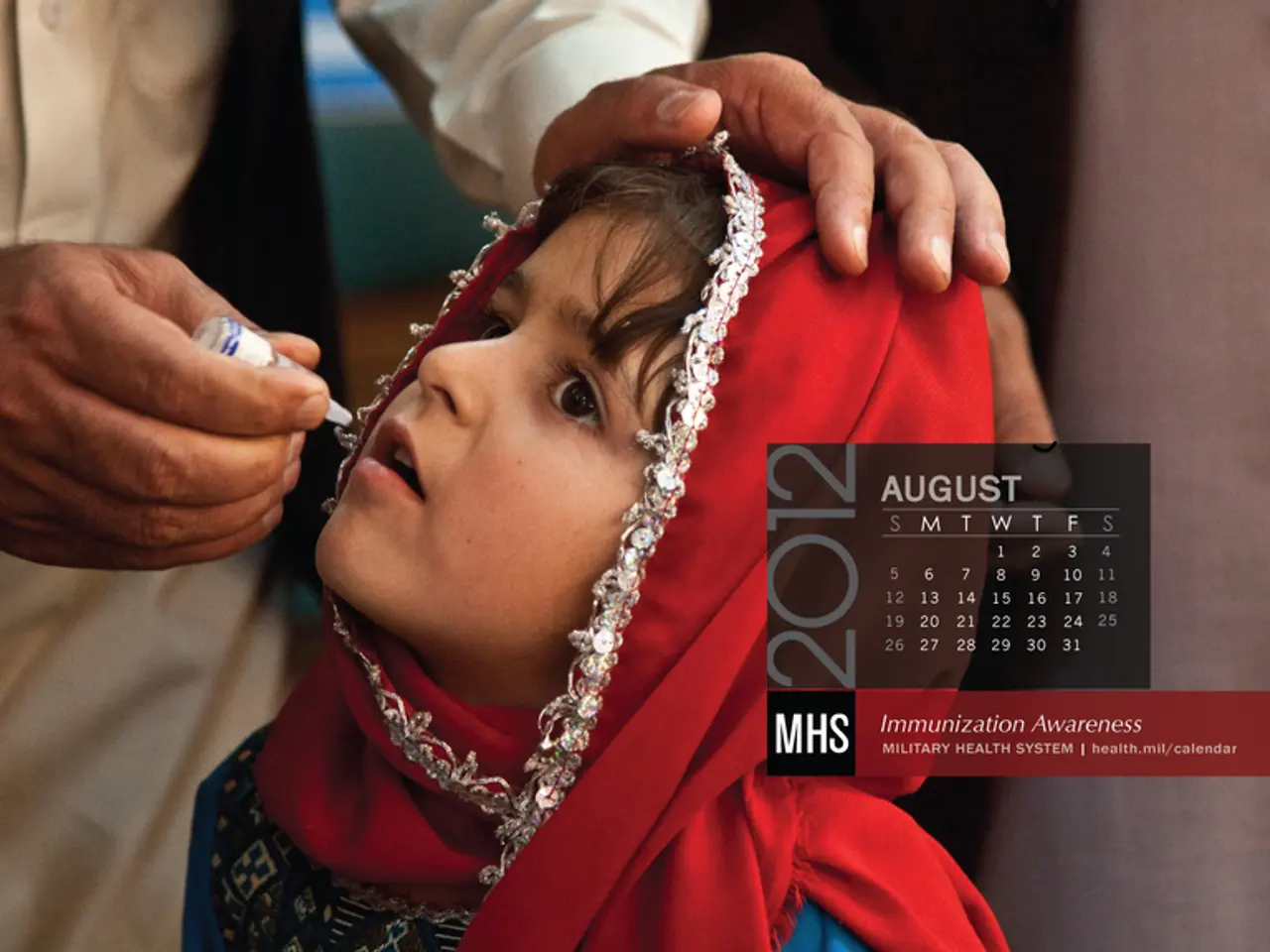Important Immunizations for Newborn Babies in Nigeria
In Nigeria, ensuring the health and well-being of its children is a priority. The Nigerian immunization program, a long-standing initiative, provides routine vaccinations against life-threatening diseases such as measles, polio, pertussis, tetanus, hepatitis B, and diarrheal diseases, among others [1]. This program, primarily coordinated by the National Primary Health Care Development Agency (NPHCDA), aims to protect infants and contribute to overall public health.
However, access to vaccinations is a major challenge, particularly in remote areas, due to the lack of proper infrastructure and healthcare facilities [2]. To address this issue, engaging community leaders, religious institutions, and providing factual information can help overcome these concerns [3]. Additionally, investing in mobile vaccination units and strengthening community healthcare centers can improve accessibility [4].
The current vaccination schedule in Nigeria includes traditional childhood vaccines administered from birth through early childhood, as well as newer additions such as the malaria vaccine introduced in late 2024 [5]. The malaria vaccine requires four doses starting at around 5 months of age, with subsequent doses at 6, 7, and a booster at 15 months or later if delayed. Other campaigns, such as the large-scale Measles-Rubella vaccination campaign targeting children aged 9 months to 14 years, are implemented periodically to boost immunity in the population [4].
NPHCDA collaborates with global partners such as WHO, UNICEF, and Gavi to secure vaccine supply, technical assistance, and capacity building. For instance, the Nigeria Immunization Agenda 2030 Collaborative, launched in 2024 in partnership with NPHCDA, UNICEF, and Gavi, connects local government areas and health workers to enhance immunization coverage through peer learning and rapid implementation of corrective actions [2].
Addressing challenges like regional inequalities in vaccine uptake, vaccine hesitancy influenced by cultural and religious beliefs, supply chain disruptions, and shortages of trained staff is crucial [1][3]. Misconceptions, religious beliefs, and fear of side effects contribute to vaccine skepticism in Nigeria, making education and outreach programs essential [3]. By addressing misinformation, promoting vaccine education, and enhancing trust in healthcare systems, hesitancy can be combated [6].
Proper storage of vaccines is essential to maintain their potency and effectiveness. Inadequate storage conditions can lead to vaccine spoilage and reduced efficacy [7]. To mitigate this, training healthcare workers on proper storage techniques and providing reliable refrigeration systems can minimize spoilage [8]. Furthermore, collaborating with international organizations, implementing temperature monitoring technologies, and regular maintenance can strengthen the cold chain [9].
Urban areas have better access to vaccinations compared to rural areas in Nigeria [2]. Establishing mobile vaccination clinics and outreach programs can help address the urban-rural disparity [4]. By vaccinating Nigerian newborns, we can effectively prevent the spread of diseases, reduce child mortality rates, and contribute to a healthier and safer society [10]. It is our collective responsibility to prioritize the well-being of our children and ensure they receive the necessary protection through vaccinations [10].
In conclusion, Nigeria’s immunization program, under the stewardship of NPHCDA, has evolved to integrate established vaccines with new ones like the malaria vaccine, deploying a mix of routine immunizations and mass campaigns while facing and addressing numerous operational challenges to improve childhood vaccination coverage nationwide. With continued efforts in improving infrastructure, training healthcare workers, implementing monitoring systems, and addressing vaccine hesitancy, Nigeria can strive towards universal vaccination coverage.
- In Nigeria, ensuring the health and well-being of kids is a family priority, especially with the Nigerian immunization program, providing necessary vaccinations against various diseases for children and infants.
- To overcome challenges in accessing vaccinations, particularly in remote areas, it is important to engage community leaders, religious institutions, and provide factual information about the benefits of vaccines.
- Investing in mobile vaccination units and strengthening community healthcare centers can help improve accessibility for children, thereby contributing to overall public health and safety.
- Proper storage of vaccines is crucial to maintain their potency, and this can be achieved through training of healthcare workers on storage techniques and providing reliable refrigeration systems.
- By vaccinating children, we can effectively prevent the spread of diseases, reduce child mortality rates, and contribute to a healthier and safer society, making it a parenting responsibility supported by the health-and-wellness community.




